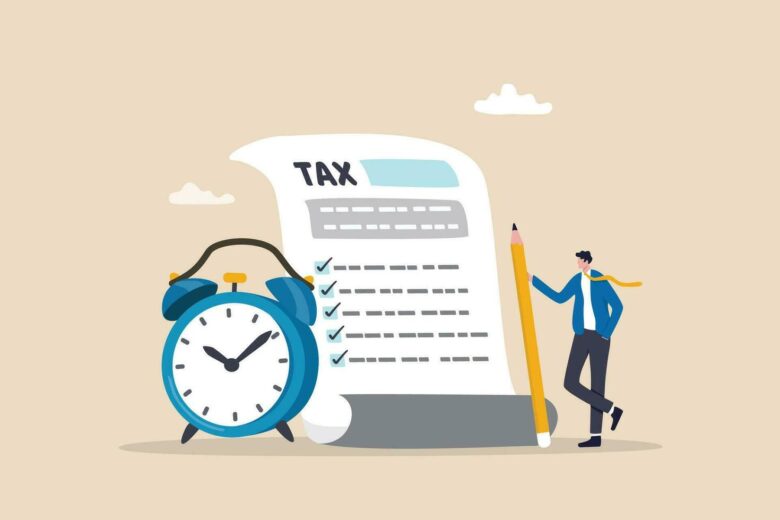In today’s complex financial landscape, understanding the basics of taxation and implementing a smart tax strategy is essential for individuals and businesses alike. By taking a strategic approach to taxes, you can not only minimize your tax liability but also optimize your financial health for long-term success. In this article, we will explore key principles and strategies that will empower you to make informed decisions about your taxes.
Understanding the Basics of Taxation
Before diving into the complexities of tax planning strategies, it is crucial to have a solid understanding of the basics of taxation. Taxes are financial charges imposed by governments on individuals and businesses to fund public services, infrastructure, and other government expenditures. Taxes can take various forms, including income tax, sales tax, property tax, and corporate tax.
Income tax is a tax on the income you earn and is usually progressive, meaning that the more you earn, the higher your tax rate. It is important to understand how income tax works, as it is one of the most common types of taxes that individuals encounter. By knowing your tax bracket and understanding the deductions and credits available to you, you can optimize your tax liability and potentially save money.
Sales tax, on the other hand, is a consumption tax imposed on the purchase of goods and services. It is typically a percentage of the purchase price and varies from state to state. Understanding sales tax is important when budgeting for purchases, as it can significantly impact the overall cost of an item.

Property tax is another type of tax that individuals need to be aware of, especially if they own real estate. Property tax is levied on the value of the property and is typically paid annually. It is important to understand how property tax is calculated and how it can affect your overall financial situation.
Corporate tax is a tax imposed on the profits of businesses. It is important for business owners to understand corporate tax laws and regulations to ensure compliance and to optimize their tax liability. By understanding how corporate tax works, businesses can make informed decisions about investments, expenses, and other financial matters.
By familiarizing yourself with the different types of taxes and their impact, you can gain insights into how taxes affect your financial situation. This knowledge will form the foundation for developing a smart and strategic tax approach.
The Importance of Tax Planning
One of the key principles of a smart tax strategy is tax planning. Tax planning involves taking proactive steps to minimize your overall tax liability. This includes strategically timing your income and expenses to optimize your tax bracket position and taking advantage of available deductions and credits.
By engaging in ongoing tax planning, you can ensure that you are not leaving any money on the table and are maximizing your savings. It is important to consult with a tax professional to identify opportunities for tax planning and to stay up-to-date with changes in tax laws that may impact your strategy.
Tax planning is not just for the wealthy or for business owners. It is a valuable tool for individuals of all income levels to optimize their tax situation. By understanding the tax laws and regulations that apply to you, you can make informed decisions that can potentially save you money.
Different Types of Taxes and Their Impact
Each type of tax has its own set of rules and regulations. Understanding how each tax works and its impact on your financial situation is crucial for developing a comprehensive tax strategy.
For example, income tax is a tax on the income you earn and is usually progressive, meaning that the more you earn, the higher your tax rate. On the other hand, sales tax is a consumption tax imposed on the purchase of goods and services. Property tax is levied on the value of real estate you own, while corporate tax is imposed on the profits of businesses.
By understanding the nuances of each tax and their implications, you can make informed decisions that align with your financial goals. For example, if you are considering purchasing a property, understanding the property tax rates in different areas can help you make a more informed decision about where to buy.
Additionally, understanding the impact of taxes on your investments can help you make strategic decisions about where to allocate your funds. Certain investments may have tax advantages, such as tax-free municipal bonds, while others may be subject to higher tax rates.
Overall, understanding the basics of taxation and the different types of taxes can empower you to make informed financial decisions and develop a smart tax strategy. By staying informed about changes in tax laws and regulations, consulting with a tax professional, and engaging in ongoing tax planning, you can optimize your tax situation and potentially save money.
The Principles of Smart Tax Strategy
Now that we have covered the basics of taxation, let’s explore the principles that underpin a smart tax strategy.
A smart tax strategy involves careful planning and decision-making to optimize your taxable income and minimize your tax liability. By understanding and applying these principles, you can effectively reduce your tax burden and maximize your tax savings.
Timing is Everything in Tax Strategy
One fundamental principle of tax strategy is timing. By strategically timing your income and expenses, you can optimize your taxable income and minimize your tax liability.
Timing plays a crucial role in tax planning. For example, if you expect your income to increase dramatically next year, it may be beneficial to defer income into the following year to lower your taxable income for the current year. By doing so, you can potentially reduce your tax rate and save money.
Similarly, timing significant expenses such as medical bills or business investments can help offset taxable income. By carefully planning when to incur these expenses, you can maximize your deductions and reduce your overall tax liability.
By understanding your financial situation and making strategic decisions about the timing of your income and expenses, you can effectively reduce your tax burden.
The Role of Deductions in Reducing Tax Liability
Another key principle of a smart tax strategy is leveraging deductions to reduce your tax liability. Deductions are expenses that are subtracted from your taxable income, lowering the amount of income that is subject to taxation.
Deductions can significantly reduce your tax liability if utilized effectively. Common deductions include mortgage interest, state and local taxes, medical expenses, and charitable contributions. By keeping meticulous records of your eligible deductions and understanding the rules and limits for each deduction, you can maximize your tax savings.

It is important to stay abreast of changes in tax laws that may impact deductibility to ensure that you are taking advantage of all available deductions. Tax laws are subject to change, and staying informed can help you make informed decisions and optimize your tax strategy.
Additionally, it is essential to maintain proper documentation and records to support your deductions. This will help you substantiate your claims and avoid any potential issues during tax audits.
By leveraging deductions effectively and staying informed about changes in tax laws, you can reduce your tax liability and keep more of your hard-earned money.
Advanced Tax Strategies for Long-Term Success
Once you have a solid foundation in tax planning and the principles of smart tax strategy, you can explore more advanced strategies to optimize your financial health.
When it comes to tax planning, it’s important to think beyond the basics. Advanced tax strategies can help you minimize your tax liability and maximize your after-tax income. Let’s dive into some of these strategies in more detail.
Tax Diversification: A Key to Financial Health
Tax diversification involves spreading your investments across different tax-advantaged accounts and investment vehicles to minimize taxes in retirement. By diversifying your investments, you can potentially lower your overall tax liability and increase your after-tax income.
One way to achieve tax diversification is by strategically allocating your investments across different types of retirement accounts. For example, contributing to a Roth IRA allows for tax-free withdrawals in retirement, while traditional retirement accounts like 401(k)s and IRAs provide tax-deferred growth. By taking advantage of both types of accounts, you can create a tax-efficient retirement income strategy.
Another aspect of tax diversification is considering investments outside of retirement accounts. For instance, investing in taxable brokerage accounts can provide flexibility in terms of tax planning. By carefully managing capital gains and losses, you can minimize the tax impact of your investment returns.
The Power of Tax-Advantaged Investments
In addition to tax diversification, investing in tax-advantaged vehicles can be a powerful strategy for reducing your tax liability. Tax-advantaged investments include municipal bonds, which provide income that is exempt from federal taxes, and qualified retirement accounts, which offer tax benefits on contributions and growth.
Municipal bonds are issued by state and local governments to fund public projects. The interest income generated by these bonds is generally exempt from federal taxes. This can be particularly advantageous for investors in higher tax brackets, as it allows them to keep more of their investment income.
Qualified retirement accounts, such as 401(k)s and IRAs, offer tax benefits that can help you grow your wealth more efficiently. Contributions to these accounts are typically tax-deductible, meaning you can reduce your taxable income in the year of contribution. Additionally, the growth within these accounts is tax-deferred, allowing your investments to compound without the drag of annual taxes. However, keep in mind that withdrawals from these accounts are generally subject to income tax.
By incorporating tax-advantaged investments into your portfolio, you can potentially increase your after-tax returns and build wealth more efficiently. It’s important to consult with a financial advisor or tax professional to determine the best tax-advantaged investments for your specific situation.
Remember, tax planning is an ongoing process. As your financial situation evolves, it’s important to reassess your tax strategies and make adjustments as needed. By staying proactive and informed, you can make the most of advanced tax strategies and set yourself up for long-term financial success.

Avoiding Common Tax Mistakes
Even with a solid understanding of tax planning and strategy, it is easy to make common mistakes that can increase your tax liability.
Misconceptions About Tax Brackets
One common misconception is the belief that reaching a higher tax bracket will result in paying higher taxes on all of your income. In reality, tax brackets are marginal, meaning that only the income within each bracket is taxed at the corresponding rate.
Understanding how tax brackets work can help you make informed decisions about income and deductions without becoming overly concerned about moving into a higher tax bracket.
The Pitfalls of Overlooking Deductions
Another common mistake is overlooking deductions that you may be eligible for. Failing to take advantage of eligible deductions can result in unnecessarily higher tax liability.
By staying organized and keeping meticulous records, you can ensure that you are capturing all eligible deductions and maximizing your tax savings.
Navigating Tax Laws and Regulations
Finally, staying informed about changes in tax laws and regulations is crucial for maintaining a smart and strategic tax approach.
Keeping Up with Changing Tax Laws
Tax laws and regulations are subject to change, and it is important to stay up-to-date to ensure compliance and take advantage of any new opportunities.
Consulting with a tax professional and regularly reviewing reputable tax resources can help you stay informed about changes that may impact your tax strategy.
Understanding the Role of Tax Professionals
While developing a knowledgeable understanding of tax planning and strategy is essential, it is also important to recognize the value of working with a tax professional.
Tax professionals have expertise in navigating complex tax laws and can provide personalized advice tailored to your unique financial situation. They can help you identify opportunities for tax planning, ensure compliance, and optimize your tax strategy for long-term success.
In conclusion, adopting a smart and strategic approach to taxes is crucial for maximizing your financial health. By understanding the basics of taxation, implementing sound tax planning, and leveraging advanced strategies, you can minimize your tax liability, optimize your after-tax income, and achieve long-term financial success. Stay informed, consult with professionals, and pursue ongoing education to continuously refine your tax strategy and adapt to changes in tax laws and regulations.
More to read: The Key to Financial Success with Debt Recycling


